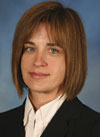Wisconsin Supreme Court Accepts Six New Cases, Will Consider Constitutionality of Hate-Crime Penalty Enhancer
 The Wisconsin Supreme Court recently considered a number of petitions for review and voted to accept six new cases. (As I said before, I am planning to write here whenever the Wisconsin Supreme Court accepts new cases. This is the second of that series.)
The Wisconsin Supreme Court recently considered a number of petitions for review and voted to accept six new cases. (As I said before, I am planning to write here whenever the Wisconsin Supreme Court accepts new cases. This is the second of that series.)
The cases accepted today include three criminal cases and three civil cases. This post describes only the three criminal cases. I’ll blog next about the civil cases.
Probably the most interesting of the three criminal cases is State v. Welda, 2007AP2024-CR. State v. Welda presents questions of interpretation and constitutionality of Wisconsin’s disorderly conduct crime and hate crime enhancer penalty. The underlying charges stem from incidents in which three Janesville residents used offensive racial epithets against a number of African-American residents, including two children. State v. Welda, 2008 WI App U 135, ¶ 2-5. When police arrived at the scene, 10-15 residents had gathered in the area of the disturbance. Id. ¶ 2. In addition to describing their African-American neighbors with inflammatory racial epithets, one of the Defendants also waved a Confederate flag during the incident, and two of the Defendants continued to speak the racial epithets after police directed them not to stop. Id. ¶ 3-5.


